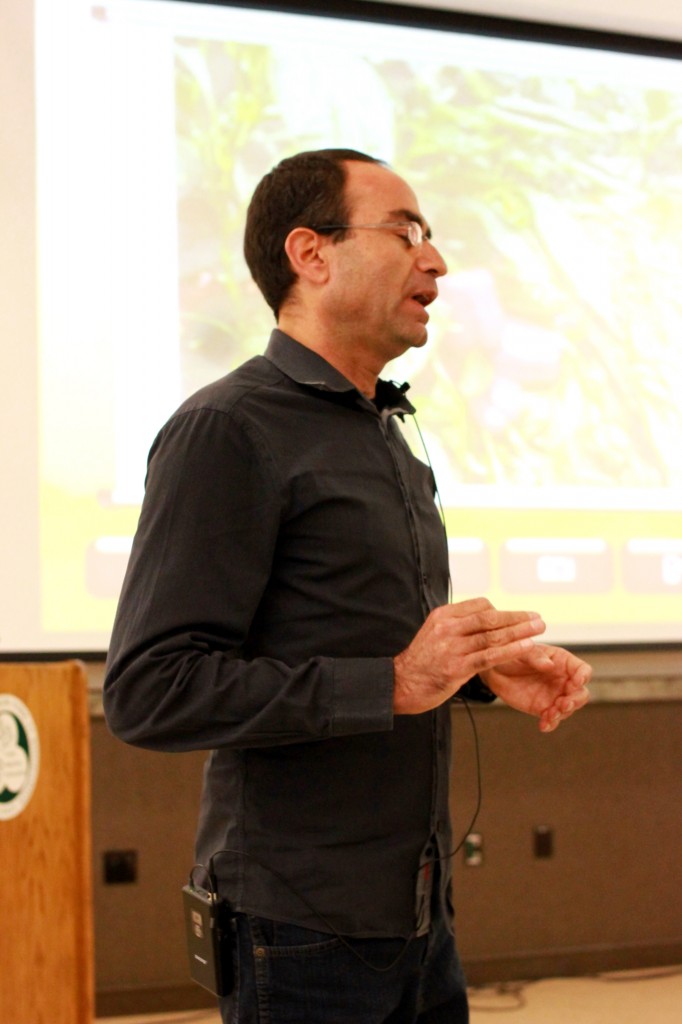
Commander Elad Seker of the Israel Defense Forces (IDF) addressed students Monday about his work as part of Israel’s search and rescue operations.
Seker spoke about the missions he undertook alongside the Israeli army and as part of Israel’s humanitarian efforts around the world.
Seker leads the 85-person, all-volunteer Arava Search and Rescue Unit. The unit is the largest emergency response team of its kind in Israel. Most of the team’s operations occur in the Negev Desert, which encompasses the majority of southern Israel.
“We are on alert 24/7, day and night,” Seker said. “I receive over 100 calls every year. Every rescue operation is unique.”
In addition to his domestic efforts, Seker said he has led a number of Israeli delegations around the world on humanitarian missions. He said he has provided disaster relief in the Philippines and Japan after their tsunami-related disasters and in South Sudan during their ongoing humanitarian crisis.
“I do it with love and I do it with passion; saving people is in my blood,” Seker said. “But when we are dealing with the whole world, sometimes there is politics. If it comes to me I always say, ‘Yes, let’s help as much as we can.’ But the call is not always my call; there’s money, there’s donations, there’s politics.”
Speaking on a more personal note, Seker talked about what motivates him to work as a rescuer.
“When I was young, my grandmother always told me, ‘Elad, I have seen the graves of Auschwitz and have reached out my hand for help, only to have no one help me. If someone reaches out their hand for help, always help them.’”
According to Seker, much of his rescue work centers on high-pressure decision-making. He said he has been called upon as a consultant by the Israeli government and Israeli businesses to train executives in managing people during a high-stakes scenario.
“If you feel the decision burning in your gut, go with it,” Seker said. “Trust your instincts. Sometimes, you might get too close to a situation, but you have to force yourself to step back, to zoom out like a map, in order to understand the situation if you want to make the right decision.”
The event was primarily organized by the Committee for Accuracy in Middle East Reporting in America (CAMERA). The group advocates against anti-Israel and anti-Jewish bias in American media sources. Dorm Room Diplomacy, iNext, the Binghamton University Zionist Organization and Bearcats for Israel also helped organize the lecture.
“News out of Syria or Israel or anywhere else in the Middle East isn’t always accurate,” said Justin Hayet, a CAMERA fellow and a sophomore majoring in political science. “We try to bring clarity and paint an accurate picture of news in the Middle East.”
Other speakers hosted by CAMERA this year include IDF solider Yishai Goldflam and Lt. Col. Anat Berko.


